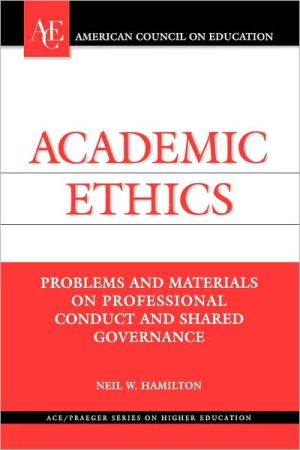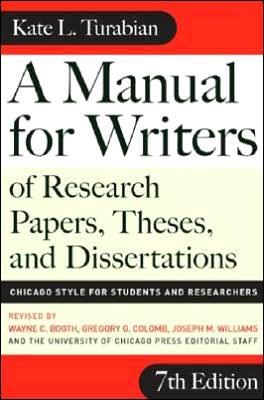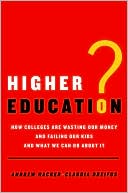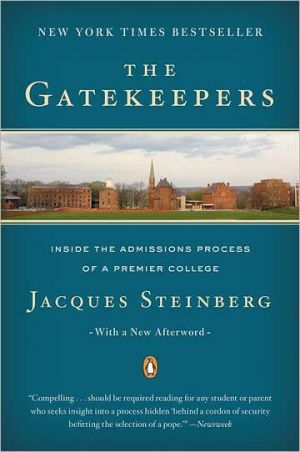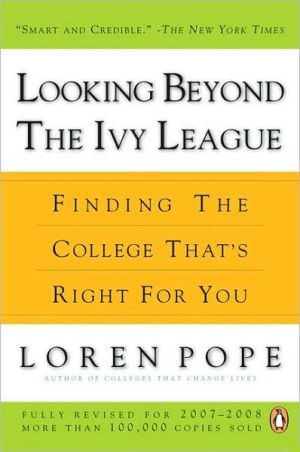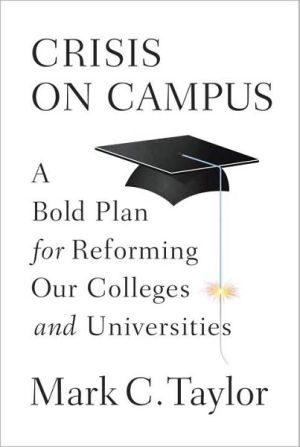Academic Ethics
This book suggests that the umbrella academic organizations step forward and draft a model code of ethics for the profession of higher education. Further discussion reveals how such attempts become difficult in face of the market's relentless pressure to frame the institution-student relationship in the economic terms of provider and customer. The book also offers an analysis of academic tradition, academic freedom, and the principles of professional conduct and shared governance. Typical...
Search in google:
Academic professionals are expected to restrain self-interest, promote the ideals of public service, and maintain high standards of performance, while society grants the profession autonomy to regulate itself through peer review. Hamilton conveys the need for ethical leadership from within the peer collegium—leadership that will foster a culture of high aspiration and peer review.
PrefaceAcknowledgments1Introduction12The American Academic Profession: The Tradition of Academic Freedom and Shared Governance173Problems on the Duties of Individual Professors874Problems on the Rights of Academic Freedom for Individual Professors1275Problems on the Duties of the Faculty as a Collegial Body1476Problems on the Rights of the Faculty in Shared Governance1517Problems on the Rights of Academic Freedom for Students163App. ASummary of the Principles of Professional Conduct167App. B1915 AAUP General Declaration of Principles175App. C1940 AAUP Statement of Principles on Academic Freedom and Tenure195App. D1966 AAUP Statement on Professional Ethics209App. E1966 AAUP Statement on Government of Colleges and Universities213App. F1998 Association of Governing Boards' Statement on Governance223App. G1967 Joint Statement on Rights and Freedoms of Students233App. H2000 AAUP Statement on Graduate Students241Selected Bibliography245Index249
\ Inside Higher Ed.Neil Hamilton observes that most doctoral programs fail to educate students about academic ethics so that knowledge of it is eroding. Lack of emphasis on ethics in graduate programs leads to skepticism about the necessity of learning about ethics and about how to teach it. Moreover, nihilist philosophies that have gained currency within the academy itself such as Stanley Fishs antifoundationalism contribute to the neglect of ethics education. Neil Hamilton has done the academic community a significant service with his new book on academic ethics....Graduate students, new professors and experienced faculty alike can benefit from Hamilton's thought-provoking analysis of the ethical duties and correlative rights of academics, both as individuals and as a collegial body....[H]amilton's book is a valuable resource to anyone with either a scholarly or practical interest in academic ethics.\ \
